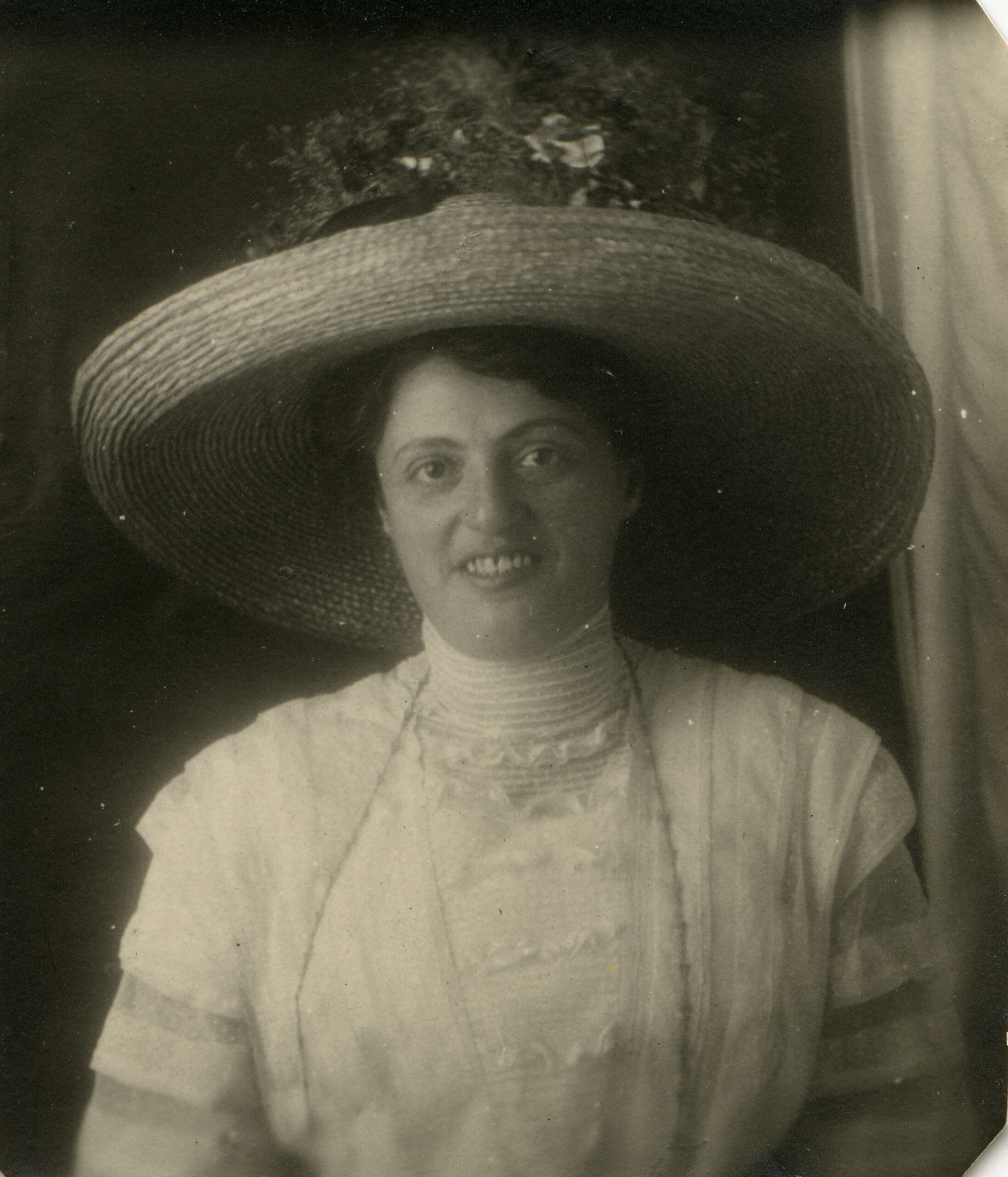Share Twitter Facebook Email Copy URL
Author of the Preamble for the Feminist Strike
A title like that may seem contradictory to anyone familiar with the apparent calmness of Swiss politics. Yet there was a time when the whole of Europe seemed to be swept by a wind of revolt that was fuelled by Marxist pamphlets and the quiet murmur of workers’ meetings. Change, if it was to come, seemed destined to be brought about by men. This was without counting on Rosa Bloch-Bollag, her flamboyant personality, her talent as a journalist and the strength of her visionary convictions. We owe it to her to have written the preamble to the Feminist Strike by organising the Hunger March in 1918 and to have demonstrated how essential the strength of the Collective is in feminist struggles.

Rosa Bloch-Bollag was born in 1880 into a family of impoverished Jewish merchants from Zurich. She studied law, which she had to abandon, and then became a salesgirl in a jewellery shop. The influence of Clara Zetkin and Rosa Luxembourg was felt in the first women’s associations, including the Swiss Workers’ Union, which she soon joined. The Union launched the journal “Die Vorkämpferin” (“The Pioneer”) and she became its editor-in-chief. The Union’s demands included the right to vote for women, minimum wages and control of women’s wages, which were largely supplementary wages. Rosa Bloch’s life story is one of service to the Collective, but her writing speaks of a singular voice, one that was strong and capable of galvanizing female workers.
The Swiss Socialist Party (SPS) welcomes the rise of women. In 1912, the members of the Union were integrated into the SPS, which included women’s suffrage into its list of demands. Rosa Bloch took up the political space given to her and became one of the leaders of the women’s movement in the party. In 1917, she became head of the the Central Committee for Women’s Agitation, the precursor of the Swiss Socialist Women. In this capacity, she occupied a position in the Olten Action Committee for the General Strike of 1918, which was otherwise composed entirely of men. It is widely acknowledged that it was the strength of her convictions that led to women’s suffrage being put right at the top of the Committee’s list of demands. Far from celebrating these efforts, the SPS replaced her, after only a month, with a male member of the party.
Rosa Bloch-Bollag did not give up the fight, however. She had been been organising women for many years, and she continued to do so in the streets. As a worker, she had seen at first hand the damage that the government policy of increasing the price of staple foodstuffs, such as bread or milk, caused in households. The precarious salaries of the workers were not enough to cover their needs, in the absence of any income from the men who had left to guard the borders four years earlier. In the summer of 1918, Rosa organised a Hunger March to protest against the prices and the misery, and 2000 women followed her. Among her followers were the bourgeois women’s associations, who had drawn up a petition for the occasion. Outside Zurich Town Hall, they demanded a hearing, which they were granted the following week. Rosa gave a speech on exploitation and usury, which was reported on throughout Switzerland. Never before had a woman taken the floor in this debating chamber, and it did not happen again until 1971. Emilie Gourd and numerous bourgeois women admired the fighting spirit of the women workers. Following the general strike, the associations of proletarian and bourgeois women were to be more united than ever.
After the failed general strike, the Swiss Socialist Party was divided. Rosa Bloch-Bollag, faithful to her working-class origins and to her revolutionary convictions, founded the Swiss Communist Party along with other former members of the Socialist Party. At this point in her life, Rosa had become a powerful woman, a rallying force who frightened the authorities. She was spied on by the Federal Council, which reported back on her group’s activities. At this time, the advent of the Third International was taken seriously and, in the wake of the assassinations of Rosa Luxembourg and Karl Liebknecht by the German state in1919, the scene was very turbulent. When Rosa Bloch-Bollag died in 1922 after undergoing an operation for a goitre, her husband believed that there was a conspiracy. History did not prove otherwise.
By Kaya Pawlowska, a member of the Genevese Collective of the Feminist Strike and the Swiss Socialist Women



